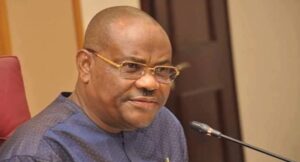CG charges NSCDC forensic unit on proactivity
By Abba-Eku Onyeka Abuja
The Commandant General (CG) of Nigeria Security and Civil Defence Corps (NNSCDC), Ahmed Audi has charged officers and men of the Forensic and Behavioural Unit of the Corps to be more productive in their professional skills. This he said would go a long way in the growth and development of the Corps, so as to create an opportunity for the actualization of the strategic vision of making personnel who are capable of applying Forensics International Best Practices to provide litigation support that will be infallible in prosecuting cases at the open court.
In a recent press release from the Director, Public Relations, DCC Olusola Odumosu, he made this statement during a workshop for forensic desk officers across the formations at the National Headquarters, Abuja where he stressed the resolve of his administration to have a well motivated staff strength through structured welfare, training and manpower development that is capable of producing operatives that are mentally stable and psychologically balanc.
The CG encouraged all the Forensic Desk Officers to pay close attention to training in order to acquire vital skills and knowledge that will in turn be transferred to personnel of various State Commands to enhance the operational efficiency of the Corps because only a stable mind can cope with the rigours of constantly changing societal challenges.
Dr. Audi added that one key area of interest to his administration is the introduction of Forensic Psychotherapy which is a modern and proactive measures to treat people with Obsessive Compulsive Disorders (OCDs) and hyper activities that are responsible for most of the contemporary crimes.
He promised to unveil a Forensic and behavioral Policy for the Corps, while also commending the effort of the head of Forensic unit, Dr. Tersoo Shaapera in ensuring that all forensic officers across State Commands remain focused despite all challenges.
The CG urged the desk officers to continue to give their best in ensuring scientific analysis of evidences, and by extension, giving therapeutic intervention strategies that would add value to the Corps and Nigeria’s National Security in general.




